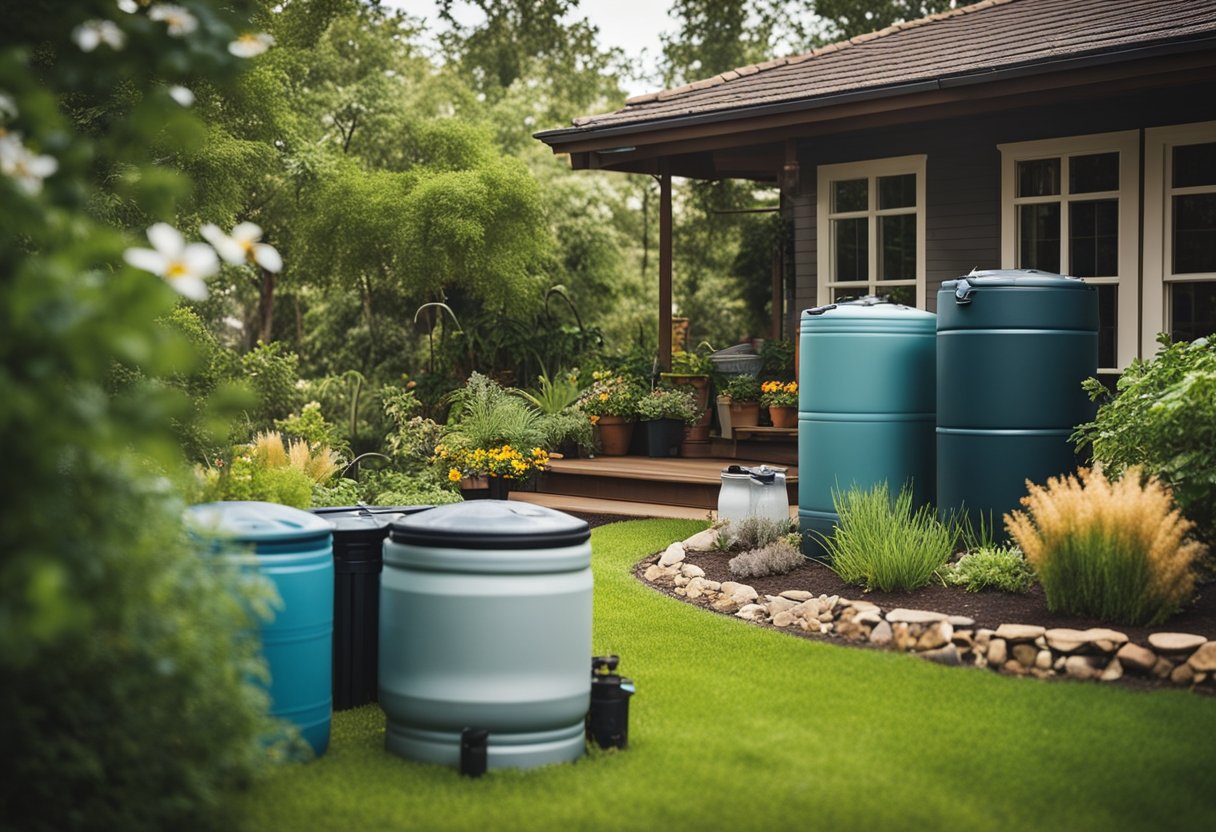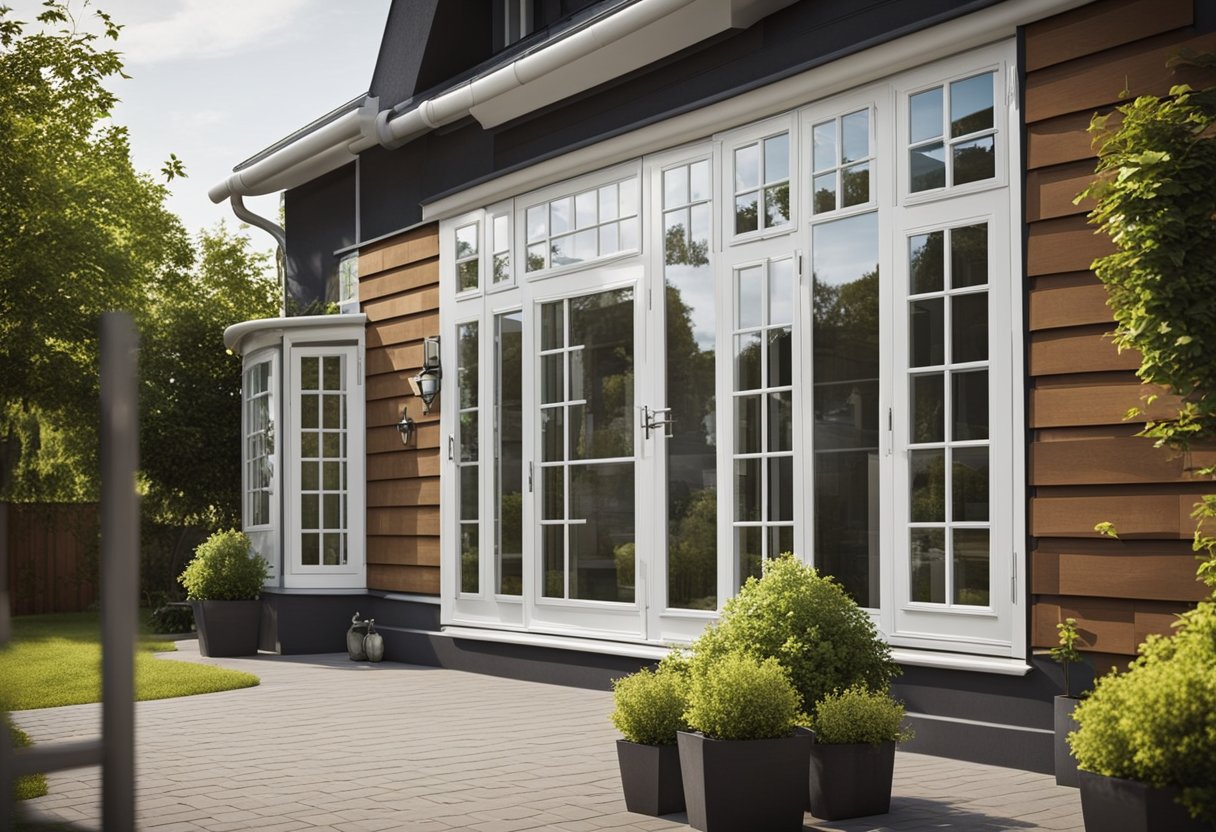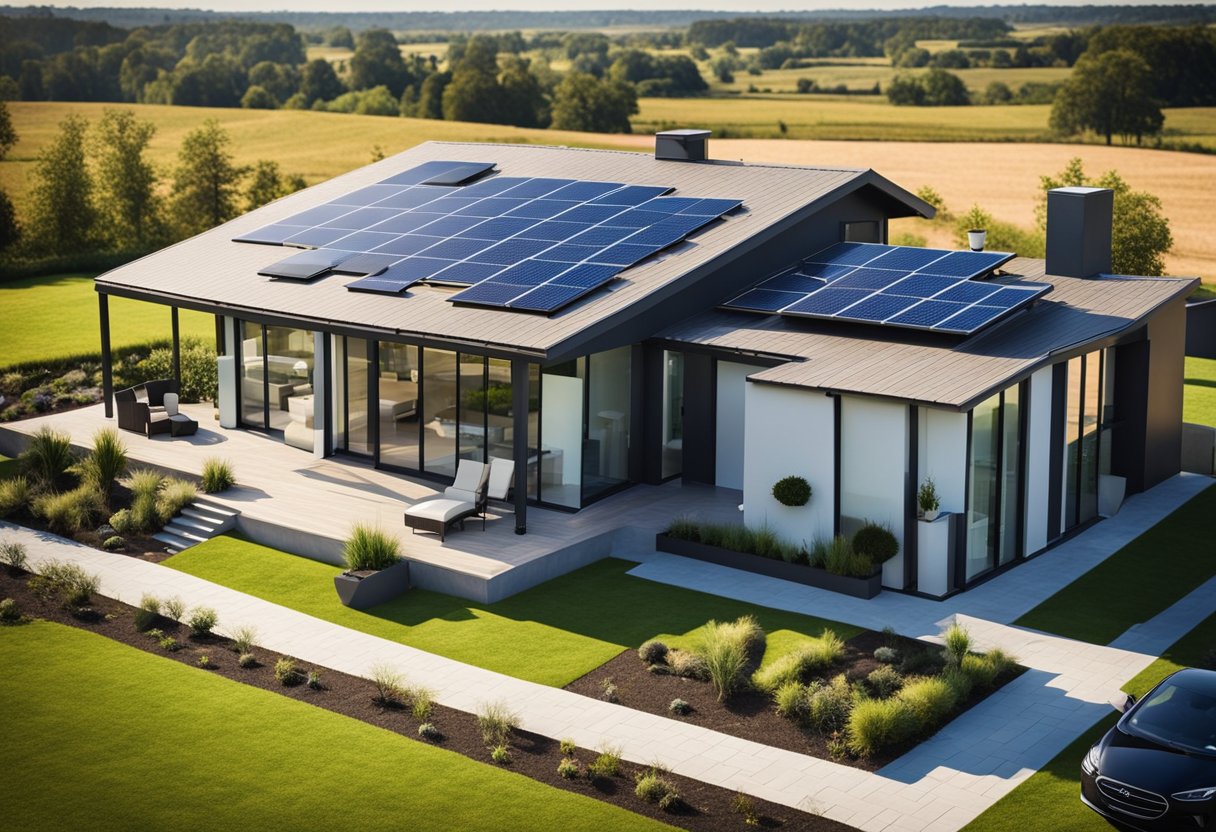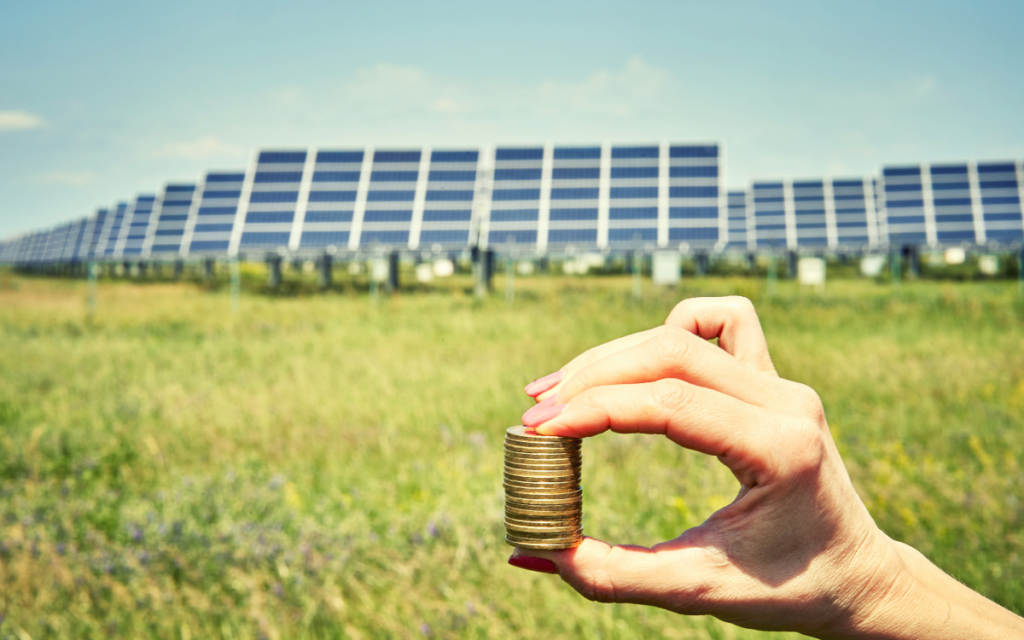Home Energy Savings Tips: Simple Strategies for Reducing Your Bills
If it were possible to harvest a money tree, many people would have no problem taking advantage of such a windfall. However, when it comes to saving money by following common sense energy tips or advice, few people will bother. We have organised free energy saving tips to help lower your energy bills while increasing your home’s level of comfort.
Reducing energy consumption in the home is both environmentally friendly and beneficial for household budgets, especially given rising energy costs. Implementing energy saving tips can lead to significant savings on energy bills and contribute to a smaller carbon footprint. Many strategies involve simple behavioural adjustments, such as turning off appliances rather than leaving them on standby, which can stop unnecessary electricity usage that often goes unnoticed.

Temperature control is another key element in home energy efficiency. Adjusting the thermostat by even a single degree can result in up to a 10% reduction in heating bills without sacrificing comfort. Strategic use of timers and controls for heating systems ensures that energy is not wasted heating an empty house, thereby optimising energy consumption. Additionally, understanding the energy costs associated with common household appliances can inform decisions about their usage and contribute to a more energy-efficient home.
While individual measures may seem small, collectively, they lead to substantial reductions in energy use and can achieve meaningful savings. Householders can successfully lower their energy consumption through a series of practical steps that also help to make their living spaces more comfortable and sustainable.
Optimising Your Heating and Insulation

Optimising home heating and insulation are critical steps to enhancing energy efficiency and reducing costs. Strategic enhancements in these areas ensure that heat is conserved effectively and heating systems perform at peak efficiency with less energy waste.
Effective Insulation
Insulating a property properly is one of the most effective ways to retain heat. A well-insulated home should include:
- Loft insulation: A thick layer, ideally 270mm, can significantly reduce heat loss.
- Wall insulation: Installing cavity or solid wall insulation prevents heat from escaping.
- Draught-proofing: Sealing gaps around doors, windows, and skirting boards stops cold draughts.
- Insulating hot water cylinders: An insulating jacket for the hot water cylinder keeps water hotter for longer, reducing the need for constant reheating.
Upgrade Your Boiler
Replacing an old boiler with a newer, high-efficiency model can reduce heating bills substantially. A modern condensing boiler is more efficient because it recovers more heat from the burning gas, which would otherwise be wasted. It is recommended to consult a professional to choose a boiler that suits the size and heating requirements of the property.
Smart Heating Controls
Smart heating controls allow for more precise management of heating:
- Programmable thermostats enable setting temperatures for different times of the day.
- Thermostatic radiator valves adjust the heat on a per-room basis.
- Smartphone apps can monitor and control home temperatures remotely, ensuring heat is used only when needed.
Radiator Efficiency
Ensuring radiators operate efficiently is key to maintaining a warm home cost-effectively:
- Bleed radiators to remove air pockets that hinder performance.
- Radiator foil behind units reflects heat back into the room.
- Regular maintenance, including system servicing, ensures all parts operate optimally.
By addressing the areas in this section, individuals can effectively improve their property’s thermal efficiency and reduce unnecessary heating expenses.
Energy-Efficient Appliances and Usage
Selecting energy-efficient appliances and adopting smart usage habits can significantly reduce electricity consumption. The following subsections focus on practical tips for optimising the use of kitchen and laundry appliances, as well as strategies to minimise wasted energy in standby mode.

Kitchen Appliances
The kitchen is a hub of appliance energy use, where choosing energy-efficient models and using them wisely can lead to considerable savings.
Ovens: Fan-assisted ovens offer better energy efficiency compared to conventional ovens by evenly distributing heat. Utilising a microwave for smaller meals can save a significant amount of energy, as it consumes less electricity.
Kettles: Only fill the kettle with the amount of water necessary, as boiling more water than needed is wasteful. Consider using a slow cooker for extended cooking at a lower energy cost compared to traditional ovens.
Fridges and Freezers: Ensure that the fridge and freezer are set to their optimal temperatures and not overfilled, as this allows for better air circulation and efficiency. Avoid placing hot food directly into the fridge or freezer; let it cool down first.
Dishwashers: Only run the dishwasher when full, and use economy settings whenever possible to save on water and electricity.
Laundry Practices
Effective laundry practices can reduce energy usage significantly in households.
Washing Machines: Washing clothes at 30°C instead of higher temperatures can cut down on energy use. Ensure full loads and use eco-modes provided by the appliance.
Tumble Dryers: They are among the most energy-intensive appliances. To minimise their use, consider air-drying clothes when possible. If using a tumble dryer, clean the lint filter after each cycle to maintain efficiency.
Irons: Iron garments in bulk to avoid wasting energy on repeatedly heating the iron. Utilise the steam function to reduce the amount of time spent on tough wrinkles.
Standby Savings
Appliances left on standby can accumulate costs over time.
TVs and Laptops: These devices often remain in standby mode when not in use. Switch them off or use a smart plug, which can cut off power supply, to save on standby consumption.
LED Bulbs: Replace incandescent bulbs with LED bulbs, which use less energy and have a longer lifespan.
Electric Showers and Hairdryers: Be mindful of the time spent using these high-energy devices. Reducing shower time and using lower heat settings on hairdryers can make a difference in energy bills.
Water Conservation Methods

In the pursuit of water conservation in the home, one can look towards optimising daily water use habits and integrating smart technology and practices, particularly in the areas of bathing and kitchen activities.
Improving Bathing Habits
Showers typically use less water compared to baths, especially when they are fitted with a water-efficient shower head. By reducing the time spent in the shower, individuals can significantly cut down on water consumption. The installation of a low-flow showerhead can further enhance water savings without sacrificing comfort. Additionally, it is advisable to repair any leaks promptly, as a dripping showerhead or hot water tap can result in substantial water wastage over time.
Smart Water Use in Kitchen
The kitchen houses several opportunities for water conservation. Using a dishwasher only when it is full and opting for an eco-mode if available can lead to remarkable savings in both water and energy use. When hand-washing dishes, filling a basin with hot water instead of letting the tap run continuously is a more efficient practice. For kettles, it is recommended to only boil the amount of water needed, as overfilling can waste water and the energy to heat it. Additionally, fitting aerators on kitchen taps can reduce water flow, thereby saving water without affecting its utility in cooking and cleaning. Managing water tanks to avoid overheating water will also prevent the unnecessary wastage of both water and heat.
Sealing and Ventilation

One’s home energy efficiency significantly improves with proper sealing and ventilation strategies. They ensure that heat remains within the home during colder months and outside during warmer times, while maintaining indoor air quality.
Windows and Doors
Windows and doors are common culprits for energy loss. Check for draughts and seal gaps with weather-stripping or caulking to prevent air leakage. For a more permanent solution, consider installing double glazing.
- Weather-stripping: Apply around movable components such as window sashes.
- Caulking: Use around non-moving parts, like window frames or where the door frame meets the wall.
- Double Glazing Windows: Incorporating a second layer of glass to create an insulating barrier.
Floor and Pipe Insulation
Floor insulation should be a priority, especially above unheated spaces like garages. Insulating under floorboards and sealing the gaps between floors and skirting boards can reduce heat loss.
- Floorboard Insulation Materials:
- Mineral wool
- Rigid insulation boards
Pipes also require attention to prevent heat from escaping and to protect them from freezing in winter.
- Pipe Insulation Techniques:
- Use pre-slit pipe foam for easy application.
- Ensure all joints and bends are fully covered.
Renewable Energy and Energy Monitoring
Embracing renewable energy sources and diligently monitoring usage are pivotal for homeowners aiming to cut energy bills and foster a sustainable living environment.

Solar Energy Solutions
Solar panels are a cornerstone of renewable energy for homes, potentially offering significant savings on energy bills. Investing in solar panels allows homeowners to generate their own electricity, and any surplus can often be sold back to the grid. Despite the initial setup costs, solar energy proves to be a cost-effective solution in the long term. Here are the specifics:
- Initial Investment: Cost of solar panel installation varies, yet grants and subsidies may be available.
- Long-Term Benefits: Reduction in electricity bills and potential income through feed-in tariffs.
Usage Monitoring
Modern energy monitors give homeowners real-time visibility into their energy consumption. Utilising a smart meter enables one to track electricity usage, encouraging informed decisions that lead to energy and cost savings. Key aspects include:
- Smart Meters: Allow for accurate energy usage tracking and can assist in identifying high consumption appliances.
- Energy Comparison: Comparing energy use over time or against similar homes can pinpoint areas for improvement.
By integrating solar energy solutions and using energy monitors, individuals can take control of their home energy and potentially reduce their environmental impact.


